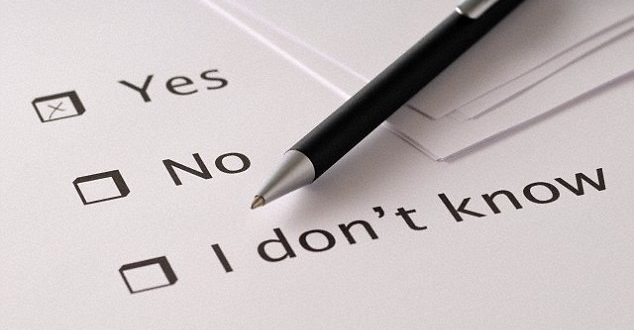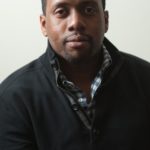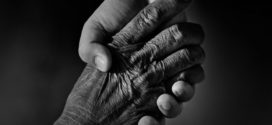In my time, I’ve been fortunate to speak in numerous spaces about my experiences as a Black Latinx male educator who teaches in Washington Heights. With those stories, people across the country extrapolate tales from my classroom, connecting to elements of me that span more than a decade of teaching over a thousand students, mostly under-served and marginalized. I’ve spoken in front of hundreds of predominantly white audiences with varying degrees of sociopolitical consciousness and will to change. I’m heartened when the audiences respond well to discussions of justice and empathy and get bolder on the few occasions when some participants walkout. Speaking truth to power often demands a performance and strong, alloyed exterior.
Yet, when I spent time away from the stage and away from people who just recently saw me speak these truths, I’m broken down. I demand alone time. I stare in the mirror for a minute or so. Some of my nervous ticks show up during meals. I start with “I’m angry that we even have to have this discussion” and end with “I don’t know why I feel like I’m the only one seeing this in our schools.” I stop short of “Maybe ignorance is bliss after all.” Ignorance isn’t bliss. Dismantling the purpose of doing this work would be.
For men, the shame manifests through the limited range of emotions we’re taught to feel. We’re either supposed to look angry or undeterred when shame comes to the fore. Our eyes often betray the sentiment, but shame does surface. Those of us who come from the hood understand that “shame” is something that we can counteract with aggression and when the target is not a person but an idea, the violence gets pointed directly at ourselves, our loved ones, anyone who’s triggered that sentiment. Our society handicaps those who have been socialized as men because our limited range of emotions puts us directly in the pocket of the cycle we wish to veer from.
Shame is a sentiment that accompanies our imposter syndromes and inferiority complexes that are hoisted upon us. When we enter rooms, we put the expertise of our lived experiences in our pocket in favor of a narrow rendition of professionalism and codeswitching. We contort our speech to fit the patterns of those around us with more power and privilege. We misremember our upbringing in favor of a dominant group’s comforts. We tremble at the notion of an uncomfortable silence shortly after an even more uncomfortable truth spoken aloud. It’s taken centuries for these elephants in the room to bow, yet here they are, bowing.
Those tasked with calling humanity to task for these injustices face any number of hardships and crises. As an outspoken educator, I’ve had to countenance the important work of educating kids with the plethora of trolls who flood my notifications on any social media platform of their choosing. During the Trayvon Martin tragedy, I’d counsel my mostly Dominican / Black children in the morning while anonymous accounts placed pictures of dead Black bodies for my specific viewing. Then, I’d wake up the next morning to see that these dead Black bodies could have easily been one of my students’. The rage kicks in. The rage has nowhere to go. When honed well, the rage informs the work we must do so that rage no longer has to find a home in us.
For our children socialized as boys, this is even more critical. I’ve taught hundreds of boys, many of whom I’ve literally had to prevent from going fisticuffs with fellow classmates over perceived slights. What gets taught as “manhood” is mostly just trickles from a violent culture. When we don’t control that rage, we learn how to hurt our environments, our people, ourselves. Then we’re too angry to get into the spaces where we would like to have a word. Shame set in just after the rage subsides because we’d rather not sit in the rage again. But we don’t teach our boys how to actually handle shame. We either teach them to deal with shame by avoiding the spectacle of shame (i.e. “Fight them”) or we don’t teach them at all.
Worse still is that racism doesn’t just come in white hoods and burnt crosses, but tyrannous policies and intentional designs. Those of us aware of these malicious intentions necessarily speak against them for the survival of humanity as a whole. We shouldn’t have to negotiate, codeswitch, or shapeshift because our backgrounds don’t match the whims and wills of a given culture. If anything, so many of these racially marginalized identities lend more credence to the problems we currently live with and the paths towards alleviating and eradicating these very problems. We can’t completely cover up the skins we’re in and the phenotypes bestowed upon us. If anything, we should rest in these features and the beauty of the greatness that permeates from that.
In the way of teaching shame, we need to start asking better questions about shame. Why are we ashamed? What have we lost or gained to make us feel said shame? What lessons can be gleaned from the shame? How do we still carry that feeling of shame while carrying that shame with us? What does forgiveness look like? Who’s your squad or collective that’ll lift you up in times when it feels like the burden gets too heavy? Our target isn’t about to eliminate shame. It’s to understand where it comes from, deal with it appropriately, and live richer lives from having dealt with it.
So when you are confronted with a space that’s hostile to your being, the shame doesn’t deter you from the works you wish to put out in the universe. That, too, is undeniable.
José Luis Vilson is a math educator for a middle school in the Inwood / Washington Heights neighborhood of New York, NY. He graduated with a bachelor’s degree in computer science from Syracuse University and a master’s degree in mathematics education from the City College of New York. He’s also a committed writer, activist, web designer, and father.
His first solo project, This Is Not A Test: A New Narrative on Race, Class, and the Future of Education, was published by Haymarket Books in the Spring of 2014. He is the co-founder and executive director of EduColor, an organization dedicated to race and social justice issues in education. He is a National Board Certified Teacher and a Math for America Master Teacher.
He has served as a board member on the Board of Directors for the Center for Teaching Quality and the president emeritus of the Latino Alumni Network of Syracuse University. He writes regularly for Edutopia and Progressive Magazine, and has contributed to The New York Times, CNN.com, Education Week, Huffington Post, and El Diario / La Prensa NY. He has also been featured at PBS, Vox, Mashable, Idealist, Chalkbeat NY, TakePart, Mother Jones, Manhattan Times, and the Fusion.
He co-authored the book Teaching 2030: What We Must Do For Our Students and Public Schools … Now and In The Future with Dr. Barnett Berry and 11 other accomplished teachers, and profiled in two other books: Teacherpreneurs (Berry, Byrd, Weider; 2013) and Teaching with Heart (Scribner, Intrator; 2014).
He was named one of GOOD Inc.’s GOOD100 in 2013 of leaders changing their worlds and an Aspen Ideas Scholar in 2013. He has also spoken at TEDxNYED, Education Writers Association Annual Conference, Netroots Nation, The US Department of Education, and the Save Our Schools March. His blog, TheJoseVilson.com, was named one of the top 25 Education Blogs by Scholastic, Education World, and University of Southern California Rossier School of Education’s Teach 100.
 Wendy Angulo Productions
Wendy Angulo Productions








